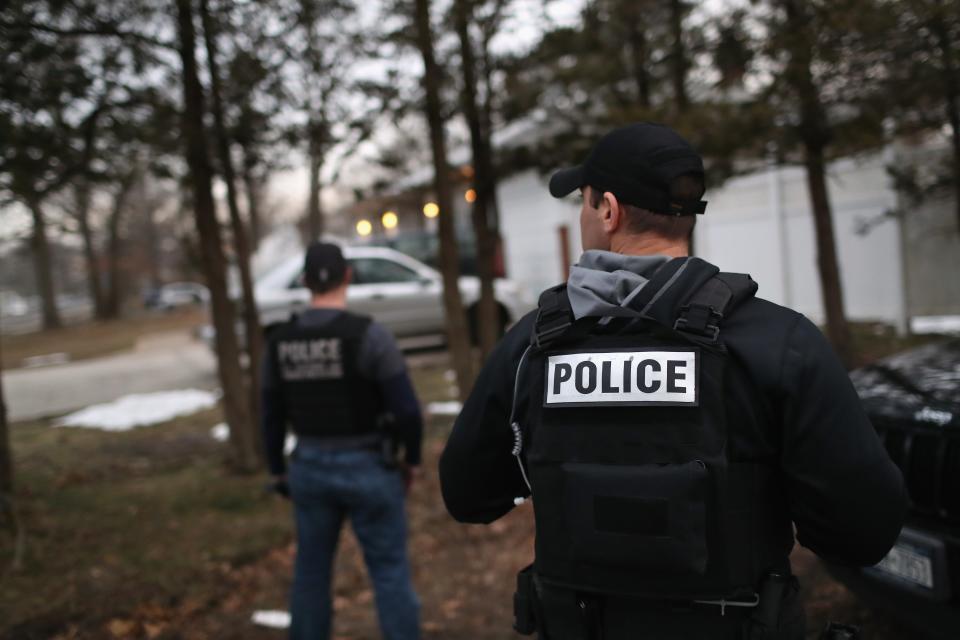Better policing begins with accountability and an end to qualified immunity
For a society based on the rule of law, the de facto reality that police officers are often treated as if they are above the law is repulsive.
Protections for cops are baked into our system, and the inability to get around them makes seeking justice virtually impossible.
The so-called Law Enforcement Officers' Bill of Rights, for example, often trumps the real Bill of Rights. Adopted in a number of states, the law offers protections for officers who are under investigation.
Some police contracts allow bad cops who are being investigated up to 30 days before they are questioned, giving them ample time to concoct dubious, hide-saving stories. This treatment is especially absurd when compared with how regular folks accused of violating the law are investigated. Once they are apprehended, they are immediately submitted to intense, often disorienting questioning.
COLUMN: Warnock, Ossoff make history. What their Senate wins say about the 'defund police' slogan
But perhaps the most egregious of all protections is qualified immunity. It saves law enforcement officers from lawsuits, some of which stem from excessive force cases that have resulted in brutality or death. Disproportionately, the people cops are brutalizing are people of color.

Police unions claim that if they end qualified immunity in order to hold bad cops accountable for brutal violations, they won’t be able to hire enough good officers. That makes zero sense. Do police academies really want to attract the sort of person who is unwilling to be held accountable for their actions? Is this the kind of individual we want patrolling our neighborhoods, sporting a badge, brandishing weapons? Absolutely not.
And that's why I have joined more than 1,500 athletes, artists, politicians and business leaders — including rapper and activist Killer Mike and R&B singer Aloe Blacc — in the Campaign to End Qualified Immunity.
COLUMN: Executions shouldn't be shrouded in secrecy. Media witnesses help hold government accountable.
In the words of Supreme Court Justice Sonia Sotomayor, qualified immunity is a license to "shoot first and think later." It all too frequently allows police officers to shoot unarmed Black people in the back and get away with it.
Here's how it works: If a cop commits a particular constitutional violation but is not held to account for it, another cop who commits a similar constitutional violation also likely will not be. In other words, the violation must already be established by a previous case — a nearly impossible hurdle.
Ending qualified immunity will send a clear message: Nobody, not even law enforcement, is above the law.
It’s disgraceful that the police unions would go to such tiresome lengths to protect murky cops who abuse their privileges. It’s not only harmful to the public, whose mistrust of law enforcement is at an all-time high, but these practices are also detrimental to the reputation of good cops who are honest people doing difficult and important work.
We can’t simply pick and choose who’s accountable and who isn’t based on status and power. In a truly just society, everyone is required to operate on an even playing field.
POLICING THE USA: A look at race, justice, media
Personal accountability is a condition of employment for any employee, in any line of work. It’s a basic principle in the rule of conduct.
And its application is especially crucial when it comes to the one class of employee whom we civilians entrust to use lethal force in our name and with our money.
We want our police to think twice before they beat somebody up or fire their guns. And whenever a cop doesn’t, and his actions result in unlawful damage, we also demand that there are consequences.
Ben Cohen is an activist, a businessman and the co-founder of Ben & Jerry's. Follow him on Twitter: @YoBenCohen
This article originally appeared on USA TODAY: Better policing begins with accountability, end of qualified immunity

 Yahoo Movies
Yahoo Movies 
